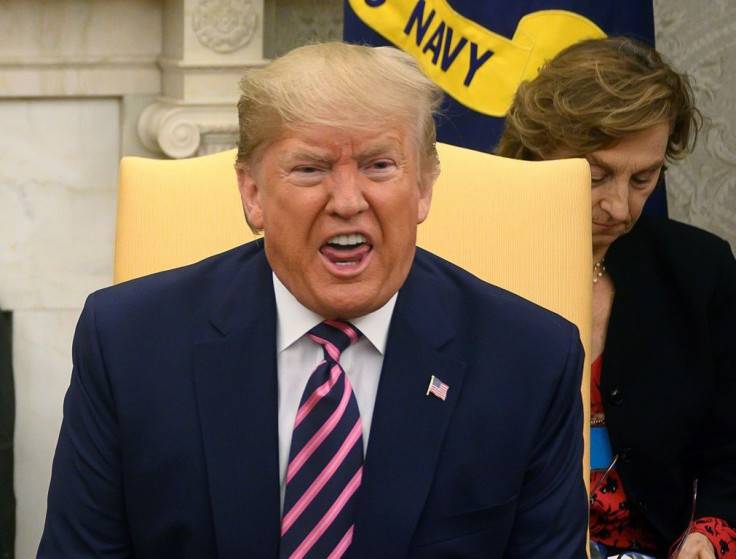91 Fortune 500 Companies Paid $0 Taxes Thanks To Trump's Tax Law

KEY POINTS
- 91 profitable Fortune 500 companies paid zero taxes in 2018
- Think Tank ITEP report blames tax breaks in Tax Cuts and Jobs Act
- Supporters of Trump Tax point to jobs boom and investment
The strange case of 91 profitable Fortune 500 companies paying zero tax on U.S. income in 2018 had been revealed in a study by the Institute on Taxation and Economic Policy.
The ITEP report notes the issue is a fall out of the Tax Cuts and Jobs Act (TCJA) that also made 379 profitable companies in the Fortune 500 list escape paying the stipulated 21 percent tax rate as per law. They paid only a nominal tax rate of just 11.3 percent.
“In 2018, the 379 companies earned $765 billion in pretax profits in the United States,” the report noted.
Per the report, if all profits had been reported to the IRS and taxed at the statutory 21 percent, the 379 companies would have paid almost $161 billion in income taxes in 2018. Instead, the companies have paid only $86.8 billion, just 54 percent of the actual liability.
The report also mentions some beneficiaries of the Trump tax regime that offered tax subsidies.
Bank of America topped the list of corporate tax-subsidy recipients with “more than $5.5 billion in 2018,” the report stated.
Among the top tax subsidy recipients also include J.P.Morgan Chase, Wells Fargo, Amazon, and Verizon wireless.
Bonanza of tax breaks
Matthew Gardner, a senior fellow at ITEP was the lead author of the report. Noting what companies had been doing “entirely legal,” he said they avoid paying taxes or lower the tax outgo thanks to a plethora of tax breaks in the new tax law.
But Gardner notes this “doesn’t exonerate these companies from wrongdoing.”
According to Gardner ITEP has been tracking effective tax rates in 1982, since then, “we’ve never seen an effective tax rate as low as the one we just found.”
The expert calls the fall in tax collection as a predictable “consequence of creating tax breaks” and dubs it a product of the actions of Congress and abetted by corporate lobbyists.
The ITEP data is also corroborated by the IRS figures that reported a drop in tax collection by $91 billion in 2018 less than what it had in 2017. The year 2018 was the first year since TCJA laws became applicable to the Treasury Department, Yahoo Finance reported.
The 2018 figures had been the lowest amount Treasury has collected from business in nearly a decade.
In 2017, the IRS collected over $338.5 billion in income taxes before refunds from businesses. The number dropped 22 percent to about $262.7 billion for fiscal 2018. In FY 2016 income taxes from corporations were $345.6 billion.
Bulging federal deficit
The Trump tax law reforms in 2017 lowered the U.S. corporate tax rate from 35 percent to 21 percent. The brunt of tax cuts and big spending are ballooning the federal deficit, which in 2019 rose to almost $1 trillion, reports The Washington Post.
The ITEP suggests lawmakers should have clipped special breaks and loopholes in the new corporate tax law to check dilution of the statutory rate.
However, Donald Trump and other Republicans argue that reduced corporate tax rates have boosted economic growth and investment in the economy. They also point to lower unemployment rates and strong hiring as evidence of the tax cut benefits.
© Copyright IBTimes 2024. All rights reserved.



















